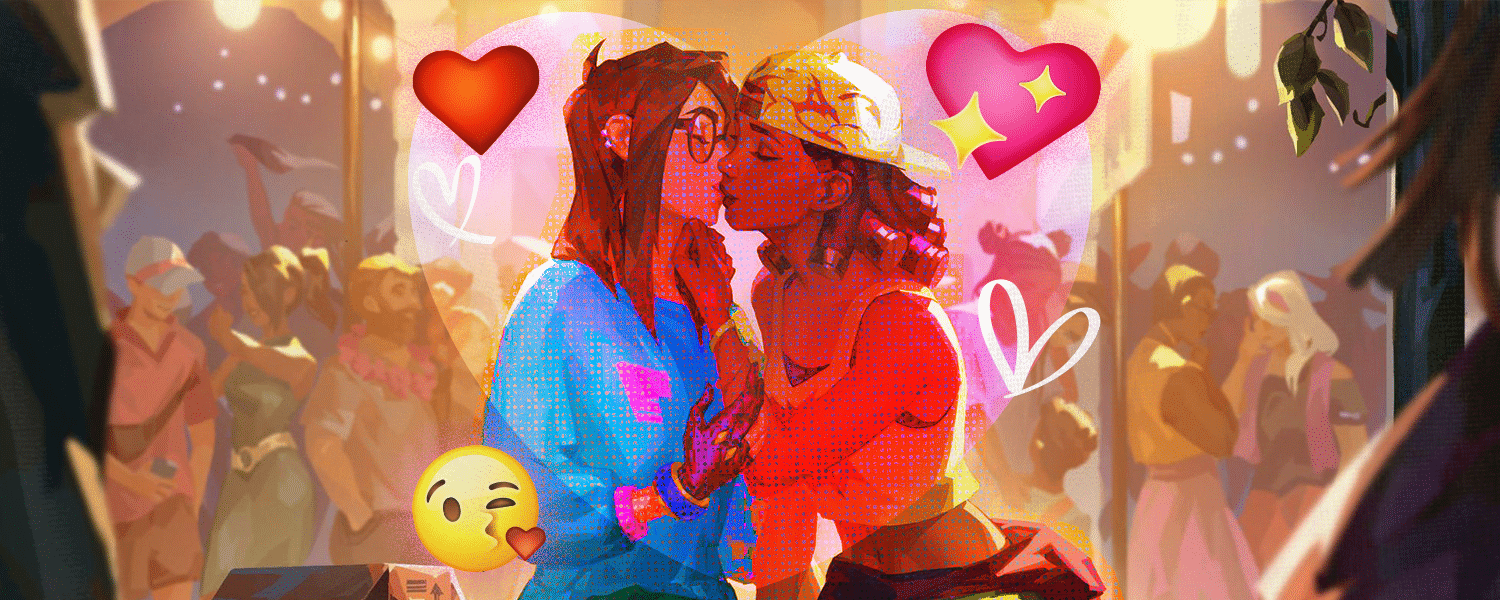WHEN Riot Games’ Valorant was launched in 2020, Filipino gamers rejoiced. Finally, a new first-person shooter (FPS) game is on the market!
Though it’s only been two years since the game’s release, the fandom has grown immensely. At present, it’s even been labeled one of the top ten most popular online games in the entire Philippines. Several tournaments for Valorant – some even sanctioned by Riot themselves – started popping up in the Philippines as well as in other countries, with First Strike, the Valorant Challengers, and the Valorant Champions Tour being just a few examples of them.
And how can it not be famous? It’s free, for the most part, and it’s a fun way to bond with friends. And it has a lot of great characters to choose from, even releasing a Filipino agent in January 2022.
Since its release, though, the Valorant community has started to gain a rather negative reputation and is now slowly becoming one of the most toxic communities in gaming. In fact, according to writer Ryan Leston of NME Asia, 79 percent of people who play the game have experienced being harassed at least once.
Of the thousands of people who fell in love with the game, 42 percent were quick to stop playing because of the rude behavior of a handful of players. It was also found that a large percentage of those being harassed were women, as well as members of the LGBTQ+ community and people of color.
Despite the notoriety that the game has gained over time, many Filipinos continue to play, whether for fun or to pursue it as a professional career. It’s hard not to wonder, then: why do they keep playing? What is it about Valorant exactly that just keeps ‘em coming?
Can’t help falling in love
According to 30-year-old Mika Fabella, an e-sports journalist and host for the Valorant Challengers Tour, Valorant’s release came at a perfect time, when Filipinos were actively searching for another shooter game to enter the scene.
At the time of its release, mobile games were all the rage: Mobile Legends, Clash of Clans, and the like. So for many, the choice to move on to Valorant came during the pandemic. Suddenly everyone was buying desktops and laptops for online classes, and, at a time when you’re isolated from the rest of the world, what else are you meant to do to pass the time?
Jeane Lopez, a 22-year-old fourth-year CIIT student, started becoming interested during the onslaught of the COVID-19 pandemic. While she’d dabbled with playing games here and there in the past, she never really saw the appeal. She even recounts judging gamers back in senior high school, wondering why gamers were so addicted to playing all the time; she simply didn’t understand the appeal.
But then, in college, she was introduced to Call of Duty Mobile. And then, soon enough, she discovered Valorant when she stumbled upon its trailer online. Hungry for another shooting game – one on the PC this time, complete with good graphics and interesting-looking characters – she was quick to install and try it out.
It was there that she fell in love with first-person shooters, playing so often that soon enough she managed to rank up to Gold III.
“I love the feeling gaming gives you,” she said.
“For a few hours, you forget all the problems. You enjoy what’s right in front of you.”
She’s been playing Valorant since it was first released, making new friends along the way and even making the decision to start streaming her gameplay to people through her Twitch account, jeanebilog. Often, when it comes to Valorant, she finds herself playing with friends, seeing it as a great way to spend time with them.
The same sentiments were shared by 25-year-old Valorant streamer Gian Carlo Abilla, more popularly known in the streaming world as GianSanity.
Abilla has been gaming since he was four years old; he would often find himself at the computer shop near his house, watching people play Call of Duty and then quickly picking up the game himself. For him, the multiplayer aspect of gaming pulled him in. Throughout his childhood, as well as high school and college, gaming was a constant hobby for him.
In the realm of Valorant, Abilla started studying the game even before it came to Asia through streams and stream keys. He was quickly intrigued by the game due to its similarity to CounterStrike: Global Offense. When he first started playing the game, Abilla found himself playing for at least eight to 10 hours a day.
Mechanical engineering student Vince Infante, 22, said that aside from its free access and amazing agents to play with, it was the fantasy-inclined game feature that enticed him most to try out the game and eventually continue playing it.
He told republicasia that there was something unique and new about being able to transport to different places in the arena through Omen’s ultimate skill or giving a teammate an opportunity to redeem themselves by reviving them mid-game using Sage’s resurrecting abilities.
And who else doesn’t admire the NanoBomb combination from the game’s favorite ships, Kill Joy and Raze?
“It feels the same when I’m reading or watching a fantasy-action novel or film, but this time, I get to experience it almost firsthand because of these powerful agents in the game,” Infante said.
“It was the abilities of the agents that made me stay because it was entirely a different experience coming from more serious gameplay like Crossfire and CounterStrike,” he added.
And for 21-year-old James Virtudes, a streamer and third-year accountancy student at the Lyceum of the Philippines, who’s been gaming since he was a kid, moving on to DOTA, CounterStrike, and then eventually Valorant, he managed to find more than just friends through the game. He first started playing just for fun with his friends, and then later on, his friend introduced him to someone who Virtudes would eventually end up dating soon after.
Valorant quickly ended up becoming a source of bonding for the two, who communicated through Valorant whenever they would pay with one another. Any time they weren’t together physically, they were often playing Valorant with one another.
Aside from being an avenue to escape from the real world as well as to make friends, Valorant may be a place to find love, too.
Valorant as a new dating platform?
Similar to other games on PC, mobile, and other gaming devices, Valorant is best played with a team. While it undeniably strengthens platonic connections between real-life friends, as Infante noted, Valorant may also lead some people down the path of love.
Dale Cortez, 25, a private school teacher, said he was able to experience a fateful encounter with his current boyfriend thanks to Valorant. Prior to dating, he used to play the game to release work-induced stress.
“I would often play alone, but there was one instance when I came across a post in Valorant PH (a Facebook group) that this certain person was looking for a player who could be his duo,” Cortez told republicasia.
Maybe it was all the stars that aligned and made him click the “Add Friend” button on Facebook. This is where their little love story began.
After getting to know basic details about each other, the two started playing consistently every night. Cortez recalled that they would often use the instant messaging social platform Discord as a means of communication because of its noise-suppression features. It also helps them concentrate in the game because they can just mute other teammates and only listen to each other’s voices.
He added that this is where they often talk about things that deepened their emotional connection — how their days went at work, the colleagues that get on their nerves, their dreams and aspirations, and even the struggles they grapple with in their separate lives.
Valorant truly connects people, and sometimes hearts, too. Cortez and his partner is a testament to that.
The game nights eventually evolved into date nights, until they both decided to give the blossoming romance a chance. Cortez said if it weren’t for Valorant, he would have never found the one his heart desires to grow old with.
“I’m eternally grateful to the Valorant fairies because if it weren’t for the game, it’s likely that I’d still be single by now,” he said.
Not the same for everyone
However, Valorant can also serve as an avenue for online sexual harassment.
While flirting in the game is common in the gaming community, some players just can’t help but go overboard. There were instances where gamers, regardless of their sexual orientation and gender identity and expression, could fall victim to in-game creeps.
Infante said that he witnessed several female players being harassed while playing Valorant. Some of their teammates, usually males, would throw uncalled compliments and catcalling remarks whenever they would see a girl with average or excellent gaming abilities. There is this stereotype that girls and women are bad at gaming, and witnessing someone showing off their skills awakens men’s predatory instincts.
“Sometimes harmless naman yung sinasabi, parang mga ‘Nice one, baby’ remarks lang kapag nakaka-clutch or ace yung female teammate,” said Infante.
“But there are also other male players who get pissed off kapag di pinapansin nung girl yung moves nya so they would often spit hateful remarks, mga trashtalk to harass the female player,” he added.
Infante further said these in-game aggressors would often target female player’s mastery of the game, and if they saw the girls ranking better than them, they would invalidate the feat and say they were only able to reach a higher level because they were boosted.
Unfortunately, Lopez is one of the many female players who have been targets of blatant misogyny in the FPS video game. During an interview with republicasia, she disclosed that the gaming community could be particularly harsh to girl gamers, especially when they are still in their Valo-noob era.
Lopez recalled that back in the days when she was just starting to play FPS and sincerely wanted to enjoy the game, she would receive spiteful remarks from male players for being bad at the game.
“I experience trash talking from male people, sasabihin nila ‘Wag ka [nang] maglaro, babae ka naman eh,’ ‘You suck at this game,’ ‘What am I gonna expect from you since babae ka?’” said Lopez.
She admitted feeling upset over these nasty and sexist comments but eventually realized that no matter what she does, whether she excels in gaming or continues to suck at it, there will always be players who will rain on her parade just because she’s a girl who plays video games.
There were also instances where she felt sexualized by simping players in Valorant. She emphasized that people in the game would instantly treat someone differently the moment they were made aware one of their teammates is a girl.
“Kasi pag nalaman nilang babae ka, sabihin nilang ‘Ang sarap mo,’ ganun. Basta very graphic sexual remarks,” she said.
But this is not an isolated case, as her friends have had similar distressing experiences. This just goes to show that incidents of abuse and harassment are rampant in the community because of the anonymity offered by the game to its dedicated players.
Misogyny, sexism, and harassment aren’t the only emerging dilemmas in the game. Apart from these, Valorant also lacks accessibility since it can only be played on a PC. A particular spec requirement is also needed in order to enjoy the game lag-free.
Despite its exclusivity and limits, it is evident that Valorant’s growth will continue because of its state-of-the-art visuals and unparalleled gaming experience.
How useful was this post?
Click on a star to rate it!
Average rating 0 / 5. Vote count: 0
No votes so far! Be the first to rate this post.
We are sorry that this post was not useful for you!
Let us improve this post!
Tell us how we can improve this post?








